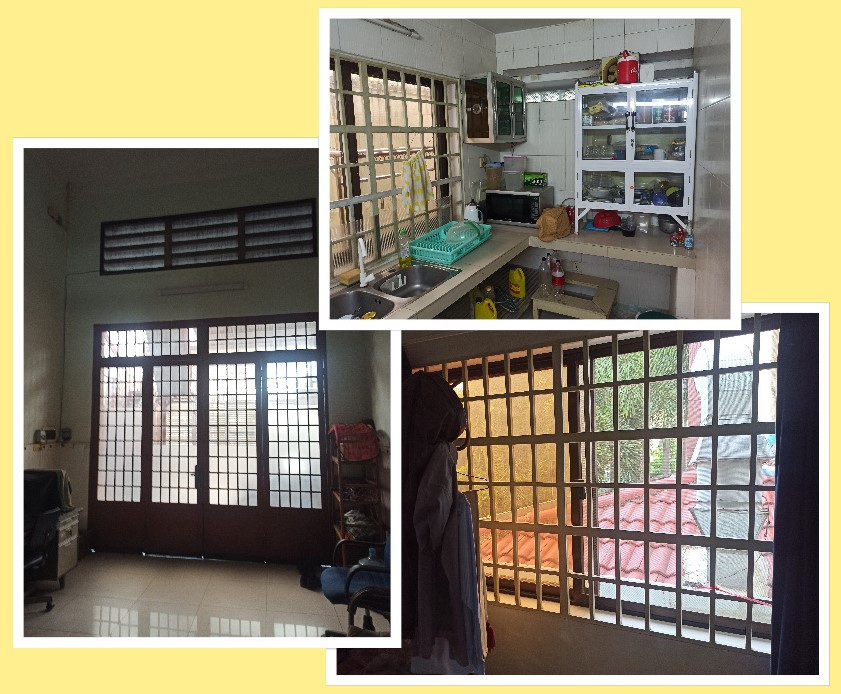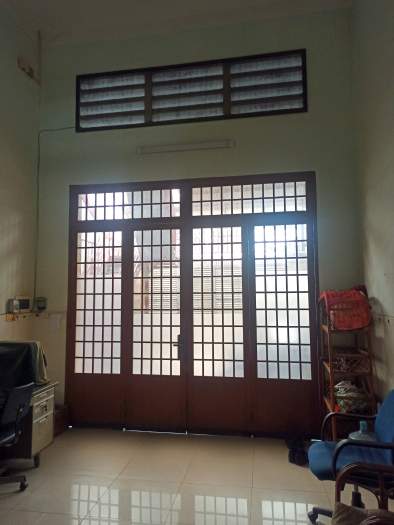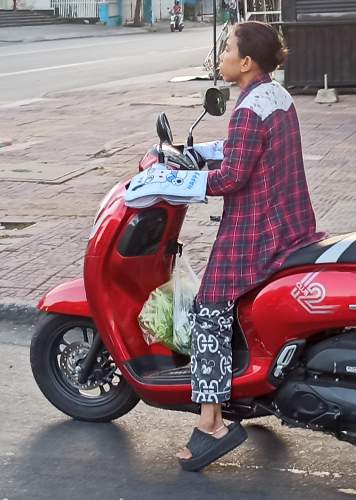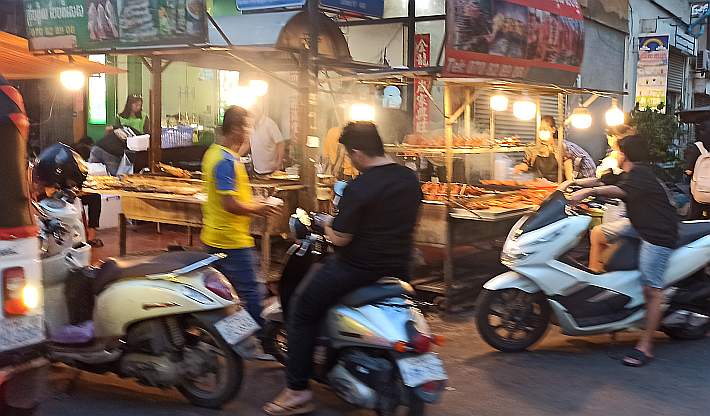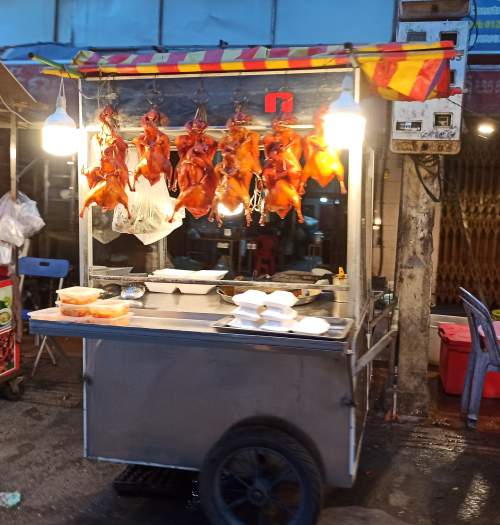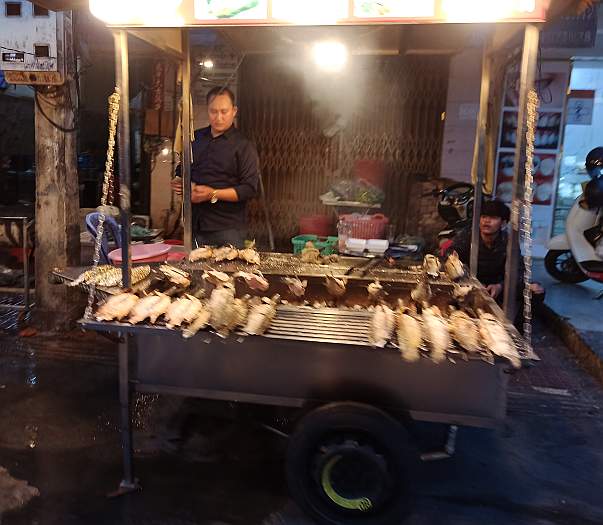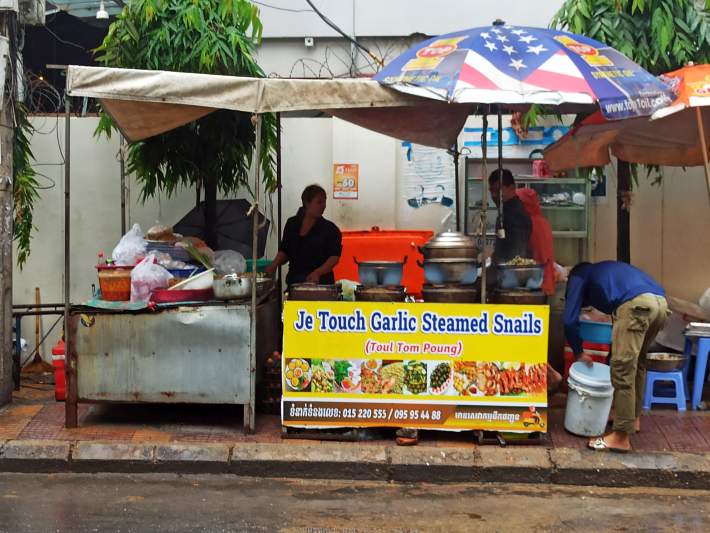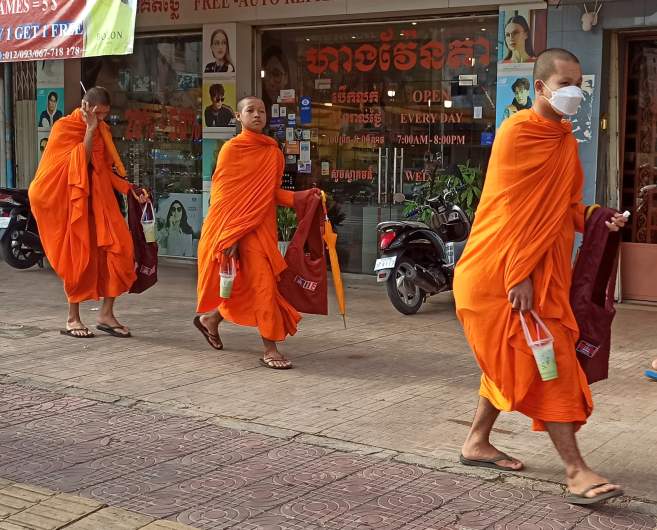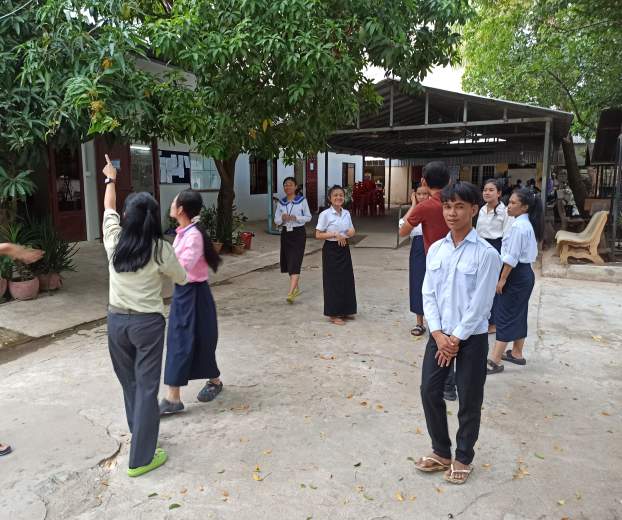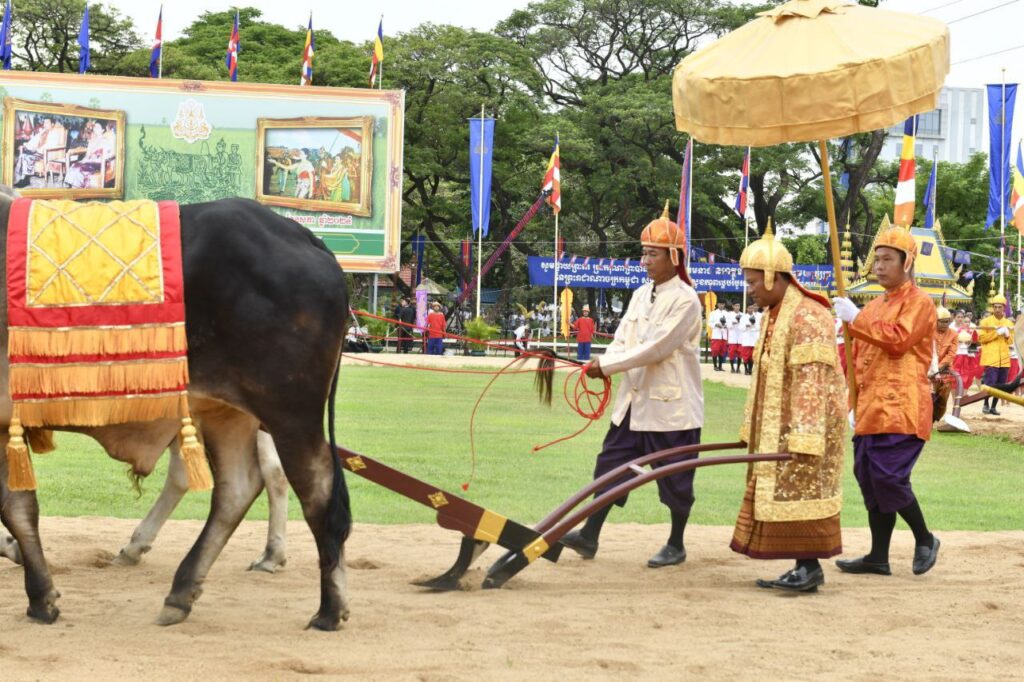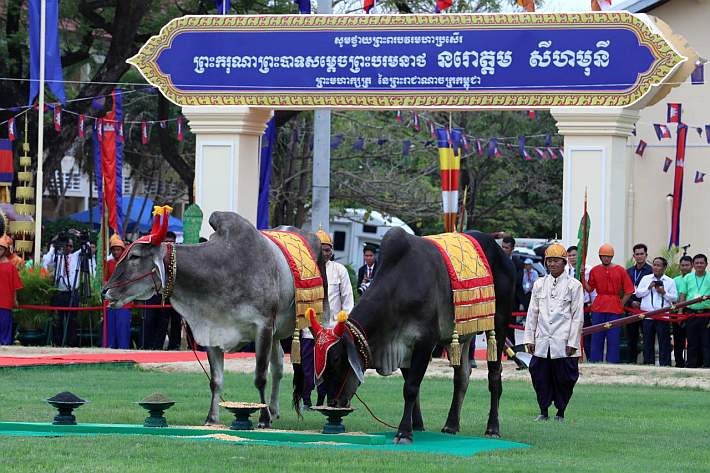Today King Sihomani attended the annual royal plowing ceremony in Kampong Speu Province. The ceremony, held at the beginning of the rainy season, is to predict the fortunes of various agricultural crops in Cambodia.
First two oxen make three plowing trips across the designated field, attended by royal officials.
Then the oxen were led to seven platters with various foods, to see which they would choose. Today the oxen favored rice, corn, and soybeans indicating to the officials that those crops will be bountiful this year. The other offerings placed before the oxen were sesame, grass, water, and wine.
[Now you know! If you want to invest in Cambodian soybean futures, now is the time!]
[Photos are from the Khmer Times.]
